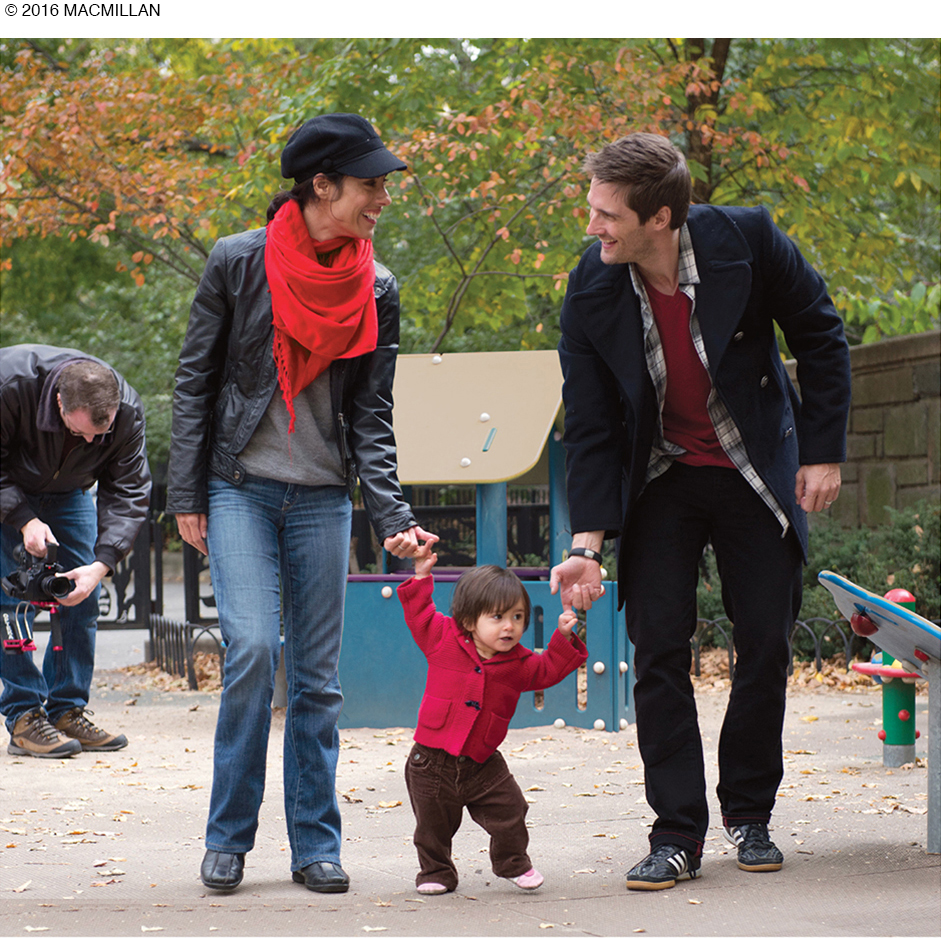Chapter Introduction

CHAPTER OUTLINE
Early Emotions
Toddlers’ Emotions
Brain and Emotions
Temperament
OPPOSING PERSPECTIVES: Mothers or Genes?
Synchrony
Attachment
Insecure Attachment and the Social Setting
Social Referencing
Fathers as Social Partners
A CASE TO STUDY: Can We Bear This Commitment?
Psychoanalytic Theory
Behaviorism
Cognitive Theory
Many Choices, Many Cultures
A VIEW FROM SCIENCE: The Mixed Realities of Center Day Care
A Stable, Familiar Pattern
CHAPTER 4
The First Two Years
The Social World
WHAT WILL YOU KNOW?
Do smiles replace tears as babies grow older?
Can you tell whether toddlers have bonded with their mothers?
Are emotions inborn or learned?
Is exclusive maternal care best for babies?
Video: The First Two Years: Psychosocial Development
My daughter Bethany came to visit her newest nephew, Isaac, 7 months old. She had visited him many times before, always expressing joy and excitement with her voice, face, and hands. By 2 months, he always responded in kind, with big smiles and waving arms, to her delight. But this time he was more hesitant, and looked away, nuzzling on his mother. Later Bethany tried again, and this time he kept looking and smiling.
“You like me now,” she said.
“He always liked you, he was just tired,” said Elissa, his mother.
“I know,” Bethany told her. “I didn’t take it personally.”
I appreciated both daughters. Elissa sought to reassure Bethany, and Bethany knew that Isaac’s reaction was not really to her, although she wished that he had not turned away. But the person I appreciated most was Isaac, responsive to people as well-
This chapter opens by tracing infants’ emotions as their brains mature and their experiences accumulate. Next we explore caregiver–
Finally we explore a controversy: Who should be infant caregivers and how should they respond? Families and cultures answer this question in many ways. Fortunately, as this chapter explains, despite diversity of temperament and caregiving, most people thrive, as long as their basic physical and emotional needs are met. Isaac, Elissa, and Bethany are all thriving.